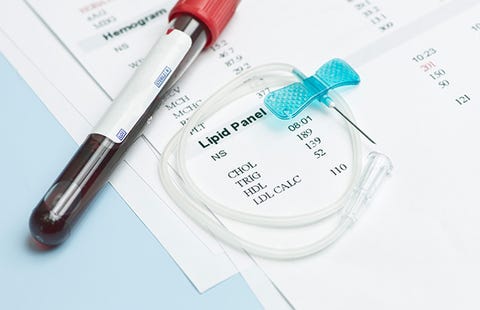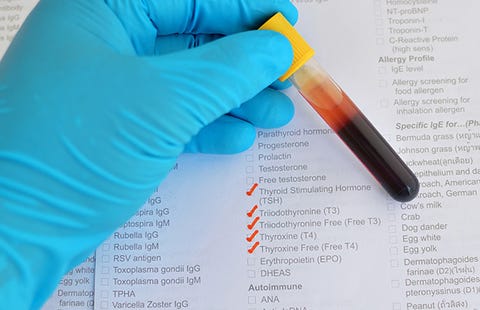My Mental Age Test Buzzfeed
The virus that kills more Americans than any other disease will probably surprise you: It's hepatitis C.
Recently, the CDC reported new surveillance data showing an all-time high of hepatitis C–related deaths in 2014, at 19,659. Because the liver disease often doesn't cause any symptoms, many people might not even know they carry the virus or that they should be tested for it. In fact, the CDC estimates that nearly half of the 3.5 million Americans living with hepatitis C don't know they're infected. When left untreated, however, the disease can lead to cirrhosis, liver cancer, and liver failure, ultimately resulting in those nearly 20,000 deaths.
(Sign up to get FREE healthy living tips and more delivered straight to your inbox!)
Luckily, all it takes is a simple blood test to diagnose, and should your test come back positive, you can be effectively treated before the virus becomes life-threatening. In fact, if you were born between 1945 and 1965, the U.S. Preventive Services Task Force (USPSTF), a panel of independent experts that weighs risks and benefits for various health screenings, recommends a one-time test for hepatitis C. If you were born before or after that time frame, you likely need to get tested only if you're considered high risk. The people at the highest risk are those who had blood transfusions before 1992, health care workers who have been stuck with a patient's needle accidentally, or injection drug users.
MORE: The 10 Most Painful Conditions
"I think one of the reasons why the CDC and USPSTF have recommended routinely testing people born between 1945 and 1965 is to avoid the problem of people being afraid to mention their past potential risk," says Erich M. Sturgis, MD, a professor and surgeon at MD Anderson Cancer Center in Houston. Sturgis has teamed up with the Prevent Cancer Foundation to help highlight the link between hepatitis C and liver cancer, as well as the link between other viruses and cancers, like HPV. "With how many Americans are estimated to be asymptomatic with hepatitis C, it's important to treat them before it's too late."
If you're visiting a doc on the regular, she should keep you up to date on the blood tests that can help you stay healthy long-term. She'll also be able to perform in-person screenings for issues like alcohol abuse, high blood pressure, or depression; administer vaccinations; and recommend health-promoting changes to your diet or exercise routine. In other words, blood tests alone are no panacea. Still, it's important to know what you need and when. Here are a few of the biggies.
Blood glucose test for diabetes
If you're overweight and have high blood pressure and a history of diabetes in your family, you're a prime candidate for a screening test of the sugar in your blood, says George A. Kuchel, MD, a geriatrics and gerontology professor and director of the University of Connecticut Center on Aging. The USPSTF recommends a blood glucose test for adults between the ages of 40 and 70 who are overweight or obese. How often you need to be screened will come down to your individual risk factors, Kuchel says. "If your blood glucose has been normal repeatedly but you're still considered high risk, the test is probably not needed more than once every year or two," he says.
Lipid panel for high cholesterol

dina2001/getty images
Cholesterol is measured as part of a blood test called a lipid panel, which looks at types of fat in your blood. The USPSTF recommends that all men age 35 and older get screened, as well as women age 45 and older with an increased risk of heart disease. The exact frequency of a cholesterol test will likely depend on how healthy you are overall, Kuchel says. If you're known to have high cholesterol and are even already taking a statin, you'll want to be monitored once a year to make sure you're getting the appropriate benefit from the drug, he says. "If someone is perfectly healthy, you probably don't need to do it every single year," he says. If yourcholesterol numbers are borderline or if you have another health condition like diabetes that would increase your risk of heart problems, you'll want to be tested "absolutely regularly," he says.
MORE: 12 Foods That Lower Cholesterol Naturally
Bloodwork for sexually transmitted infections
Ideally, your doctor is routinely asking if anything has changed about your sexual activity that would warrant a revisiting of your risk for STIs. Don't shy away from these conversations; while sexually transmitted infections are still pretty rare among older adults, they are on the rise. We're living longer, healthier lives, after all, and a long, healthy life includes sex. "In my experience, it can be very surprising, particularly for younger physicians, who assume when working with older patients that this is something that would never be an issue," Kuchel says. "Many of our patients find it difficult to initiate the conversation." If you have a new sexual partner, multiple sexual partners, or don't typically use condoms, mention it to your doc.
MORE: 16 Signs Your Thyroid Is Out Of Whack
TSH test for hypothyroidism

jarun011/getty iamges
"Hypothyroidism is so incredibly common in older adults, and generally presents with symptoms that can very hard to diagnose," Kuchel says. Feeling overall fatigue and low energy can feel like just an off day, so even though the USPSTF ruled in 2015 that there isn't enough scientific evidence to recommend screening everyone for thyroid disorders, it's a test Kuchel does somewhat regularly. If your thyroid-stimulating hormone blood test reveals that you have high TSH, you have an underactive thyroid, or hypothyroidism.
Sarah Klein Sarah Klein is a Boston-based writer, editor, and personal trainer currently with LIVESTRONG.com, and previously of Health.com, Prevention magazine, and The Huffington Post.
This content is created and maintained by a third party, and imported onto this page to help users provide their email addresses. You may be able to find more information about this and similar content at piano.io
My Mental Age Test Buzzfeed
Source: https://www.prevention.com/health/a20512410/5-blood-tests-you-need-after-age-50/
Posted by: murphyotibitepar.blogspot.com

0 Response to "My Mental Age Test Buzzfeed"
Post a Comment